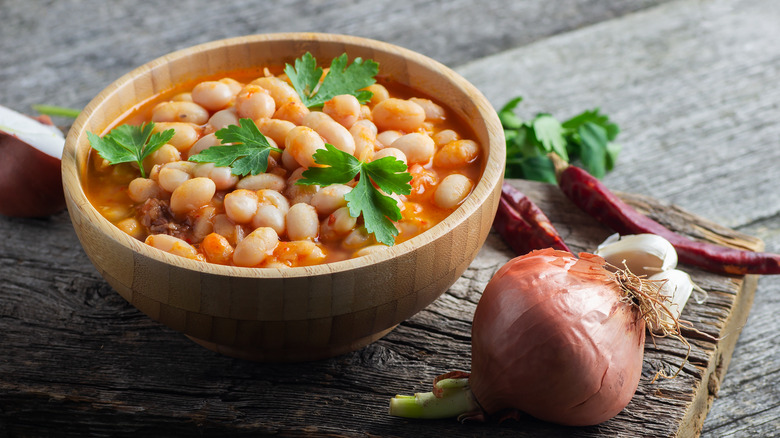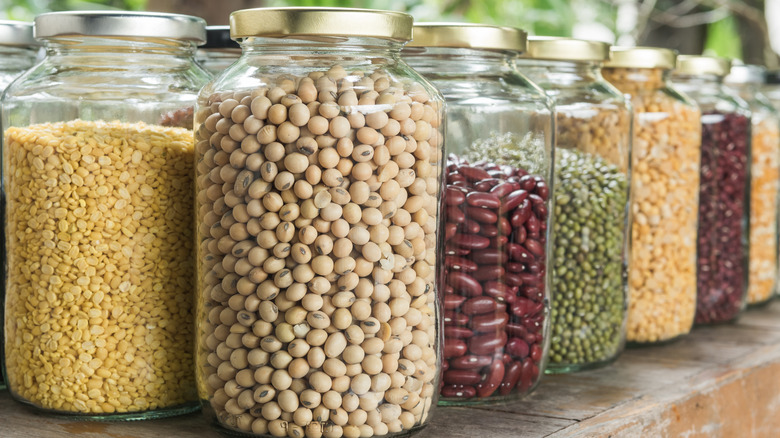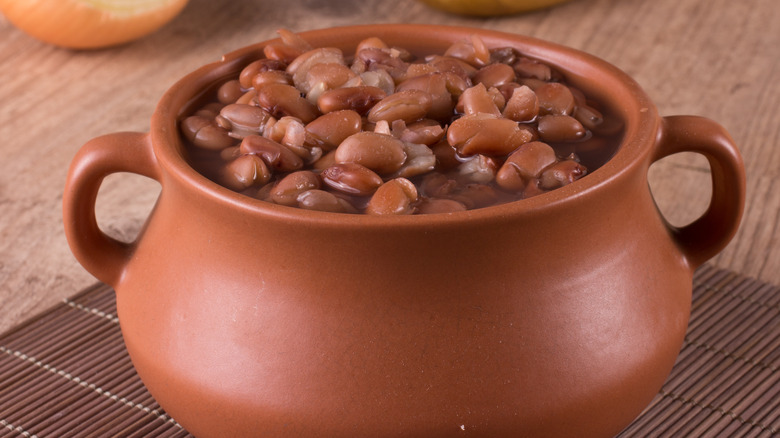Do You Actually Need To Soak Your Beans?
Beans are a tasty source of protein. They're also a popular pantry staple, with Americans eating roughly seven pounds of legumes annually, per AgHires. People often serve beans as a side dish, as they greatly complement main courses like chicken and ribs. Even so, they also work well as filling main dishes. According to Better With Beans, there are over 400 different types of beans in the world, providing a variety of flavors, textures, and shapes. The majority of these beans are not seen in grocery stores, but some of the most popular ones that you'll definitely find on shelves include pinto beans, navy beans, great northern beans, and kidney beans.
Beans are an easy food to get creative with, and there is no one way to make them. There are a variety of spices and herbs that you can season with, and many people enjoy cooking them with vegetables like onions and peppers. A step that is often regarded as crucial to many is soaking the beans. According to NYT Cooking, soaking beans helps them cook more quickly, but do you actually need to complete this step?
Soaking beans isn't necessary
Though some people stand by soaking beans, you don't actually need to soak them at all. As established, soaking beans does allow them to cook faster, but you'll generally need to soak them for four to 12 hours for the best results (via NYT Cooking), which ultimately results in a much longer prep time. If you're in a rush or simply a little impatient, you can just toss the beans in a pot, and most varieties will typically be done within two hours, per UNL Food.
However, there are other benefits to soaking beans aside from reduced cooking time. According to Gardening Know How, soaking beans can actually lessen the chance of feeling stomach discomfort. When you soak beans for a long period of time, they absorb water, which breaks down the starches they contain. The Peninsula Doctor reports that starch can result in abdominal cramping, bloating, and other painful issues. So, if you have a starch sensitivity or simply don't want to risk experiencing these problems, it might be a good idea to soak your beans. Conversely, if this food's starch content doesn't concern you, then soaking is definitely a step you can skip without any worry.
What is quick soaking?
As mentioned, the traditional way to soak beans involves letting them sit in water for four to 12 hours. This is a fairly lengthy period of time, and it's the main reason why some people choose not to soak their beans, and why some people steer clear of homemade beans altogether. However, there's an efficient method for those having a hard time determining whether they should soak their beans or not. This method is called quick soaking, and as the name implies, it involves boiling beans on the stove before soaking them for roughly one hour instead of four to 12, per NYT Cooking. Quick soaking gives you all the benefits of traditional soaking with the added benefit of a reduced prep time.
Gardening Know How reports that before soaking beans, whether you're doing a traditional or quick soak, you should clean them. To clean beans, simply rinse them under cold water. Once the beans are clean, you can spend any amount of time, including no time, soaking them.


